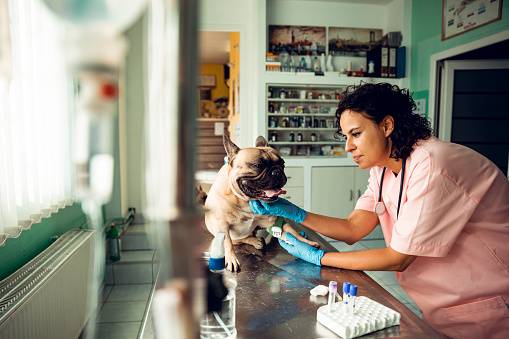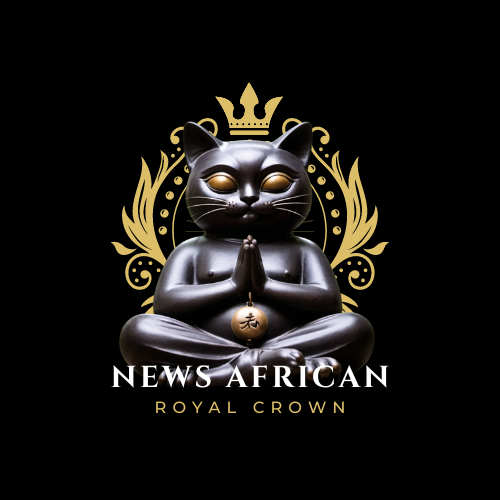
he recent termination of aid funding from the United States has significantly affected critical veterinary programmes, the South African Veterinary Association said. (Getty Images)
The recent termination of aid funding from the United States has significantly affected critical veterinary programmes, the South African Veterinary Association (Sava) said.
The abrupt cessation of this support threatens to reverse decades of progress in controlling epidemics and ensuring public health safety.
The global health initiatives of USAid extended beyond human health, playing a crucial role in addressing zoonotic diseases, which can be transmitted between animals and humans.
According to Sava, these programmes form part of the One Health approach, which acknowledges the intricate connections between human, animal and environmental health.
The withdrawal of USAid funding in South Africa jeopardises disease surveillance, veterinary public health efforts and the management of animal health emergencies, “posing a direct risk to human health through potential zoonotic disease transmission”, the association said.
“It’s very important to see the bigger picture,” Sava interim managing director Paul van der Merwe said. “The USAid is funding a lot of health programmes in South Africa, in Africa and across the world and it’s all in support of global health security.”
“When they withdraw some money from South Africa and some African states, obviously there’s a lot of health programmes that have been affected through that, and if we look at the inter-relatedness of human health programmes and animal health programmes, it affects everybody.
“They, for instance, sponsor a lot of field epidemiology training and field epidemiology is extremely important to try to detect and prevent diseases. That detection is, in part, animal diseases as well. It’s a huge ripple effect through all the health services — human health, animal health and even some environmental impacts.”
Van der Merwe noted that the World Health Organisation is trying to negotiate an international pandemic accord, with avian influenza being one of the diseases being modelled.
“Avian influenza is quite interesting because it is spread by migratory birds from Europe, through Africa to South Africa, and then if the avian flu is breaking out, it spills over into poultry and then it might spill over into humans. In America itself, it has spilled over into cattle and into humans,” he said.
“You need to monitor the migration of the birds, the disease status to be able to protect your own poultry industry and to protect humans at the end of the day. It creates a huge risk.”
What is worsening the crisis is that South Africa already has a critical shortage of veterinarians, a problem exacerbated by the emigration of professionals seeking better opportunities abroad.
According to Sava, more than 100 veterinarians leave the country each year, leaving South Africa with about 60 veterinarians per million people — far below the international standard of 200 to 400 per million.
The association reckons about 3 600 veterinarians left.
“If you think that we only qualify between 120 and 140 a year, for us to lose 100 a year is a massive impact,” Van der Merwe said, citing how South Africa had recorded a negative growth rate in terms of veterinarians for the past two years.
“It is just not sustainable. If we don’t do something urgently, we’re on the brink of a major disaster within the veterinary field.”
This veterinary shortage severely hampers the nation’s ability to control outbreaks of diseases such as foot-and-mouth disease and avian influenza, both of which have significant implications for food security and public health.
The reasons veterinarians leave the country are mainly financial, because veterinary science is the most expensive degree to pursue at university. “And then our remuneration is not commensurate with the expenses,” Van der Merwe said.
“You walk out of university, if you have a study loan, with R2.5 million to R3 million [of debt] . So you must repay that, that is R20 000 to R25 000 a month and the starting salary of a newly qualified veterinarian is R30 000.
“There’s no way that he can service his debt, but if he goes to the United Kingdom, he will get R60 000 a month, and he can service his debt and save a little bit. Therefore, some people go overseas, do it for five years, repay their debt, and save a little bit and then they come back to South Africa.”
He said it is a vicious cycle, because the fewer veterinarians there are in South Africa, the more pressure there is on those that remain. “They pick up a lot of mental health problems and because they’re suffering from mental health problems, they look for greener pastures. But the more of them that’s looking for greener pastures, the bigger the stress on those that are remaining.”
The withdrawal of USAid funding withdrawal has the same knock-on effect.
“There were a lot of funds and a lot of programmes running that supported a lot of these veterinarians and now these programmes have been stopped so they’re suddenly without work … Obviously that affects them extremely negatively again,” he said.
“The field epidemiology work needs to continue but we’ve already got the state veterinary services that are extremely non-functional and now they’ve got this extra burden suddenly on them. I think we are in for a major, major shakeup.”
The combination of reduced international aid and a dwindling veterinary workforce presents a major threat to South Africa’s public health infrastructure, Van der Merwe added.
“Without immediate intervention to retain veterinary professionals and secure alternative funding sources, the nation faces increased risks of disease outbreaks, compromised
food safety, and significant economic repercussions.”
The long-term effect on veterinary services will depend on the government’s ability to address these problems and allocate resources to mitigate the funding shortfall.
Failure to act swiftly could weaken both animal and public health systems, heightening vulnerability to zoonotic disease outbreaks and endangering food security.
“Our government is in the situation currently that I don’t think they have the funding to put aside for these efforts so they will have to reprioritise and see what is important and it’s very difficult in the health environment to say one thing is more important than the other,” said Van der Merwe.
“But we know that disease prevention should carry the burden because if you can prevent disease then obviously you don’t have all the other services that need to be rendered once a disease outbreak occurs.”



